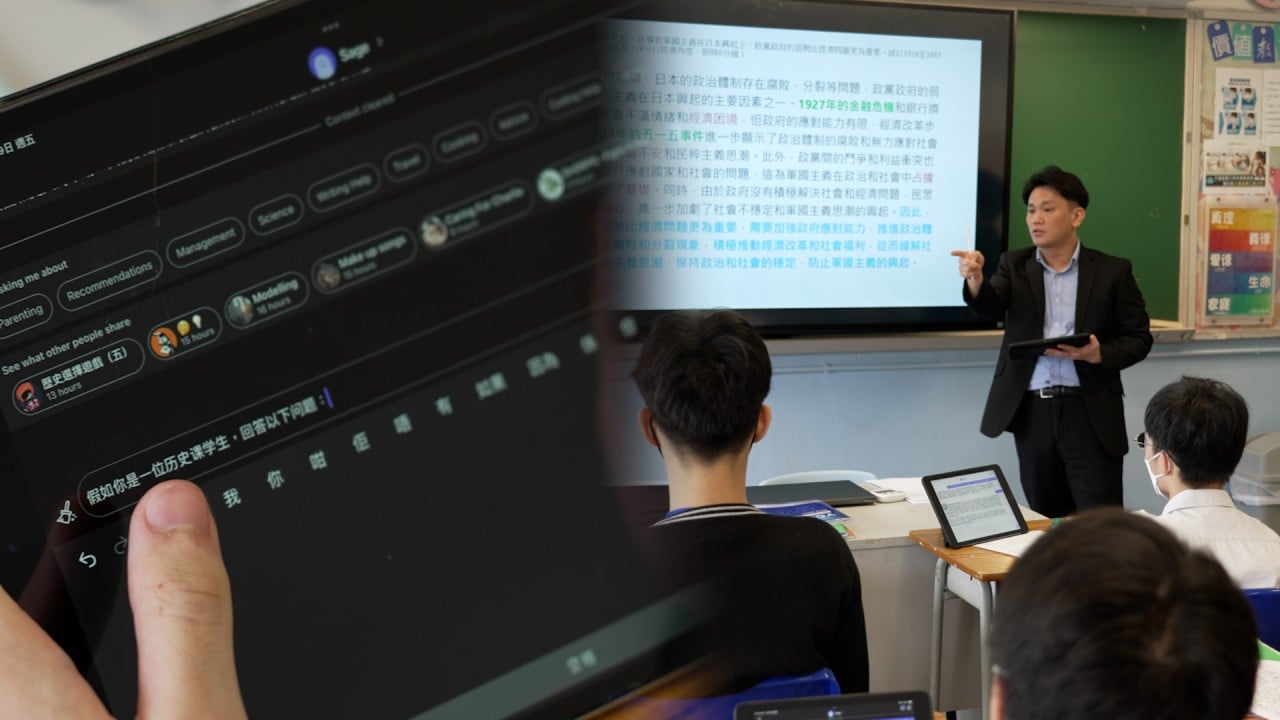Microsoft to bring OpenAI to eight Hong Kong universities to deploy generative AI tech in education
Microsoft will partner with eight universities in Hong Kong this academic year to promote its latest artificial intelligence (AI) services as part of efforts to transform education with cutting-edge technology.
The US tech giant on Monday announced it would collaborate with institutions on the design of applications and education solutions and run a series of workshops to encourage the use of AI on campuses.
“Our collaboration with the universities in Hong Kong aims to propel generative AI technology powered by Azure OpenAI service to the forefront of education,” Cally Chan, general manager of Microsoft Hong Kong, said in a statement, adding the technology can modernise the educational experience.
Azure is Microsoft’s public cloud computing platform. Its OpenAI Service allows users to build and customise “enterprise-grade” applications on top of OpenAI’s generative AI models like ChatGPT and DALL-E, used for purposes such as writing, design, coding and education.
Universities taking part in the project include the University of Hong Kong (HKU), Chinese University (CUHK), Polytechnic University, City University, Baptist University, Hong Kong University of Science and Technology, Lingnan University and Education University of Hong Kong.
“Enhancing the quality of teaching and learning using AI is a major trend for higher education institutions,” Professor Isabella Poon Wai-yin, pro-vice-chancellor of education at CUHK, said in a statement. “Collaborating with Microsoft Hong Kong to promote the application of generative AI in the university will accelerate this educational transformation.”
Professor Ian Holliday, vice-president of teaching and learning at HKU, said, “The integration of GenAI will undoubtedly enhance our students’ educational experience and provide our faculty with powerful tools for research and collaboration.”
While popular generative AI services like OpenAI’s ChatGPT and Google’s Bard are not accessible in Hong Kong without using a virtual private network, the models have remained available through certain third-party platforms.
In comparison, Microsoft’s AI solutions on Azure allow for private networking, regional accessibility, as well as better data security and AI content filtering, the company said.
After Microsoft-backed OpenAI launched ChatGPT late last year, many universities in Hong Kong quickly adopted policies against the use of AI in academic settings to allay concerns of plagiarism.
However, some institutions have also acted as pioneers in proactive implementations of the technology in the classroom.

Stay connected with us on social media platform for instant update click here to join our Twitter, & Facebook
We are now on Telegram. Click here to join our channel (@TechiUpdate) and stay updated with the latest Technology headlines.
For all the latest Education News Click Here

